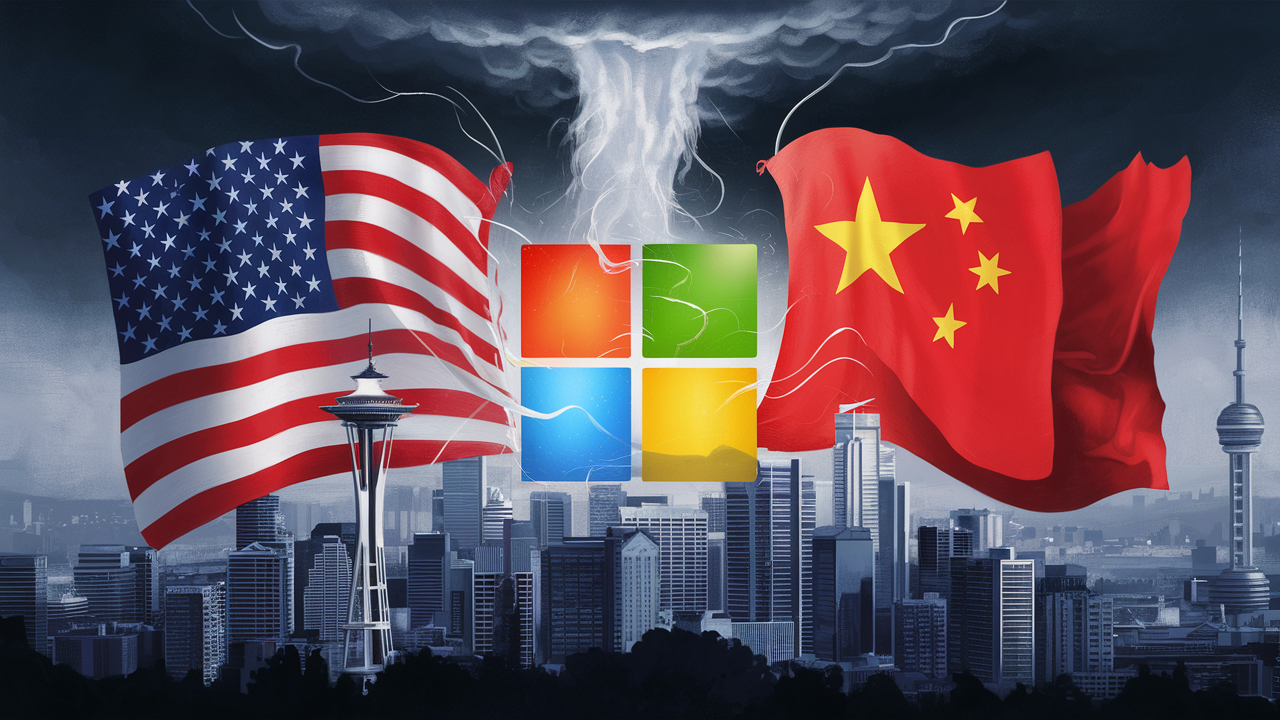Microsoft prepares to relocate staff from China as AI race continues

Microsoft has asked some of its China-based staff to prepare to relocate as relations wane over the artificial intelligence (AI) race.
Sino-American cooperation has reportedly strained after Washington moved to enforce guardrails on US-developed proprietary AI models that power chatbots like ChatGPT to ringfence the technology from countries like China and Russia.
The US is wary of China’s purported prioritization of AI development as a “major” focus which has seen significant resources dedicated to civilian and military purposes which the Biden administration believes “undermines both US and allied national security.
Against this backdrop, Microsoft has asked around 700 to 800 of its staff involved in machine learning and cloud computing-related functions to consider relocating, with the Wall Street Journal first reporting on the development.
“Providing internal opportunities is a regular part of managing our global business”, said a statement from the US tech multinational.
“As part of this process, we shared an optional internal transfer opportunity with a subset of employees,” without reference to the number of workers impacted.
Further background to recent US-China relations
The WSJ claimed those affected are mostly engineers and Chinese nationals, with offers of new placements in the US, Australia, Ireland, and New Zealand on the table.
Microsoft is said to be committed to its presence in China and will continue its operations, but geopolitical factors will remain a strong external influence.
Lines of communication remain open between the US and Chinese governments, with both regimes sending delegates to a high-level meeting in Switzerland this week, to discuss AI and to reduce the possibility of “unintended conflict.”
That followed on from official business last month when Secretary of State Antony Blinken met with China’s Foreign Minister Wang Yi in Beijing with AI on the agenda, with President Joe Biden’s administration said to be keen to follow up on early initial dialogue after exchanges with President Xi’s team in San Francisco last November.
Image credit: Ideogram
Related
EU denies picking on US tech giants, says US also…
BRUSSELS (Reuters) - Europe's new tech rule aims to keep digital markets
H-1B Visa 2025: How and why US policy shift may…
Recent changes in US H-1B visa policies have sparked significant concern within the Indian IT professional community hoping to work in America. However, the a
Alibaba Group (BABA) Stock: Chinese Tech Giants Gain $439 Billion…
Chinese tech stocks have gained over 40% this year, adding $439 billion in valueChina’s “7 titans” are outperforming the US “Magnificent Seven” tech s
The Global Spread of Protectionist Policies That Squeeze American Tech…
An increasing number of countries in recent years have begun targeting America’s leading technology firms with policies touted as measures to promote fair com













